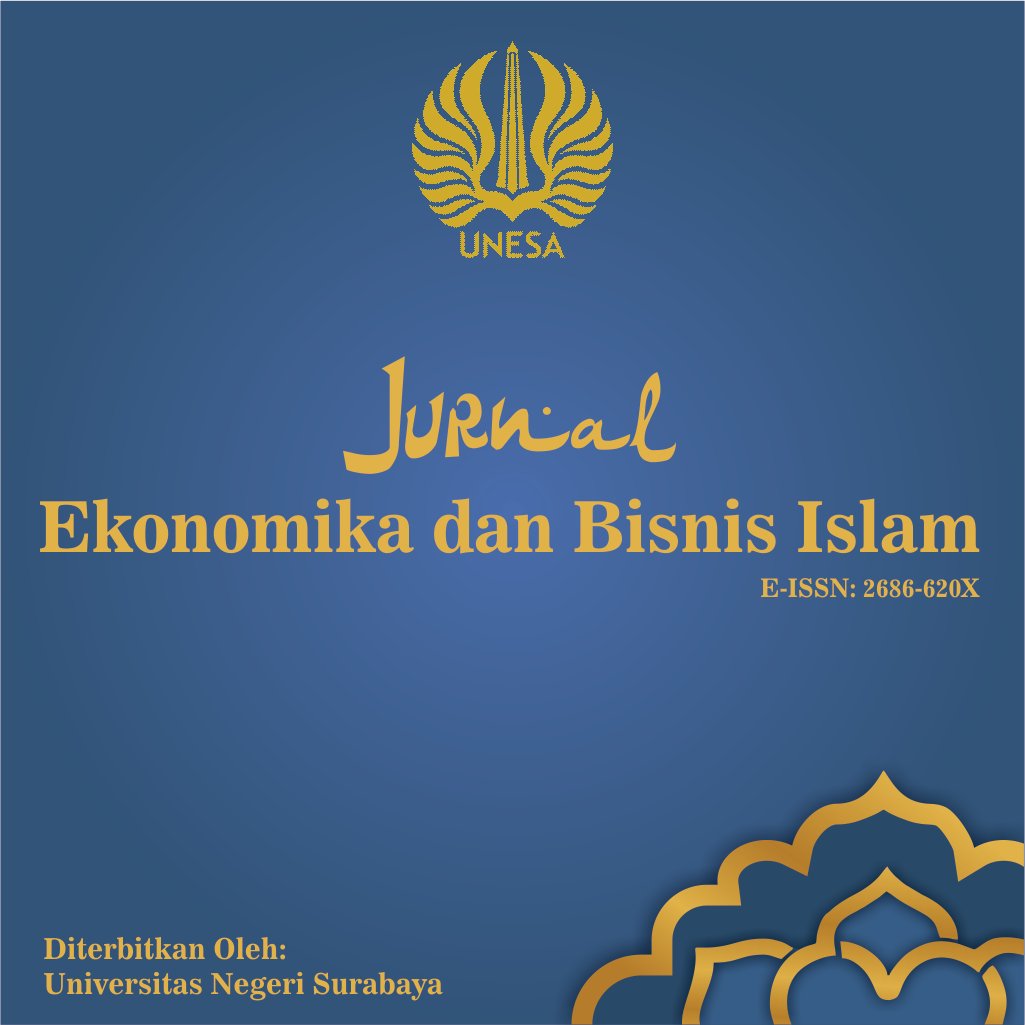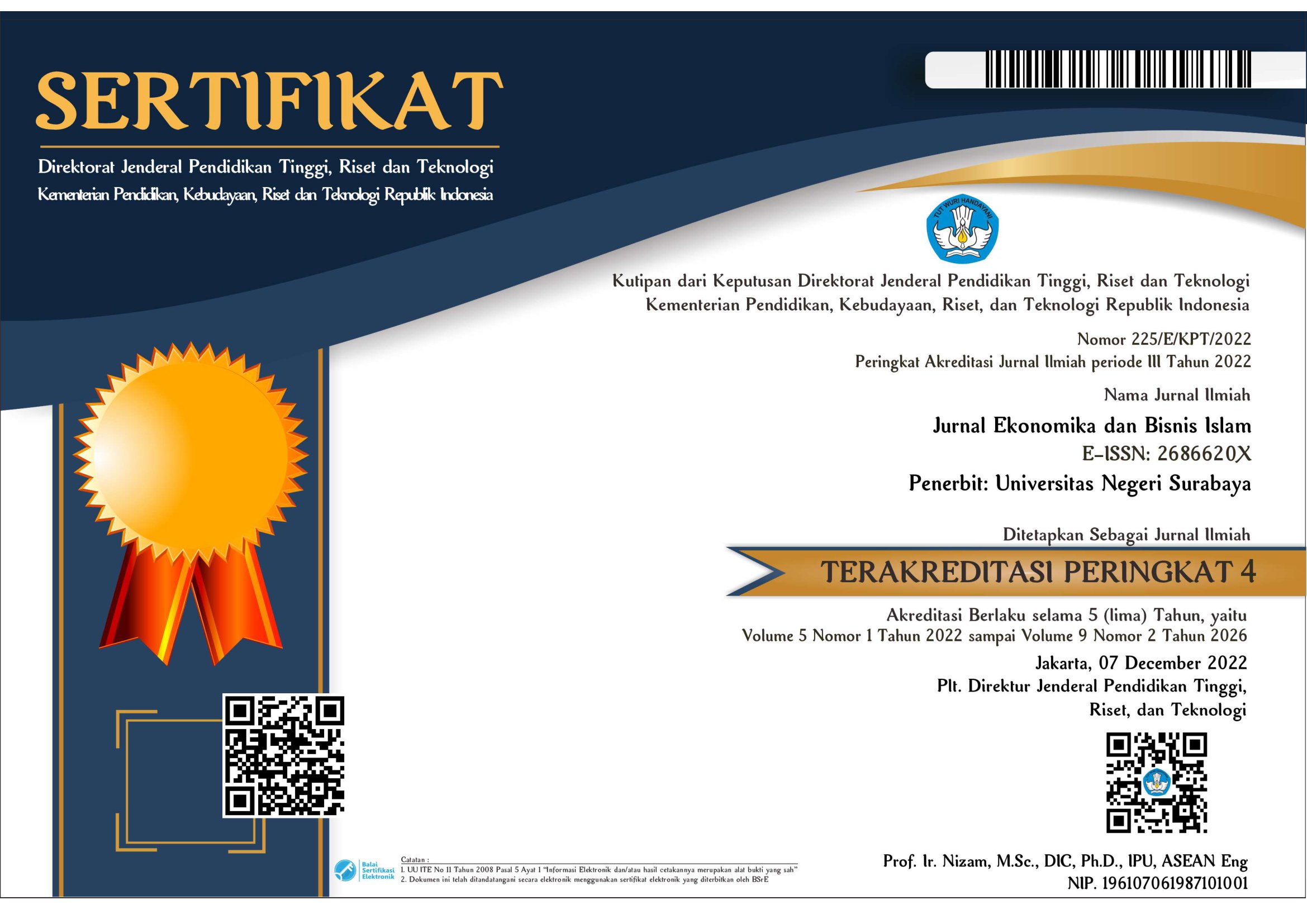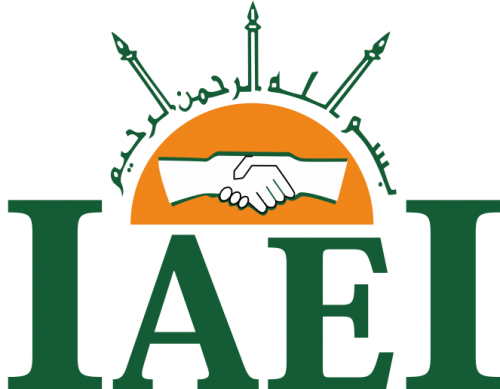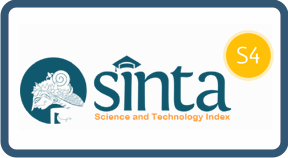Implementasi Etika Bisnis Islam Pada Perilaku Pedagang Sapi di Pasar Rojokoyo Kediri
Keywords:
Trader Behavior, Islamic Business Ethics, Rojokoyo MarketAbstract
Islamic business ethics is a standard of business ethics derived from the Quran and Hadith that must be followed by all business people. Doing business is not only aimed at seeking profit, but doing business must be based on ethics. As one of the places where business activities take place, Rojokoyo Animal Market is a cattle market center that is quite famous in the Kediri Regency area. This is because the number of traders is relatively large. Thus giving rise to several behaviors of cattle traders who are prone to cheating in trading. Thus, this study aims to determine the implementation of cattle trader behavior in buying and selling at Rojokoyo Market Kediri based on the perspective of Islamic business ethics. This research method is a descriptive qualitative method with a case study type of research. By using primary data and secondary data obtained by researchers from observations, interviews and documentation to several parties involved, as well as some literature in accordance with the research theme. While the results of this study show that all cattle traders in Rojokoyo Market have implemented the principles of Islamic business ethics.
References
Afzalurrahman. (1997). Muhammad Sebagai Seorang Pedagang. Yayasan Swarna Bhumy.
Badroen, F., Mufraeni, A., Suhendar, & Bashori, A. D. (2006). Etika Bisnis Dalam Islam. Prenadamedia Group.
Bertens, K. (2000). Pengantar Etika Bisnis. Kanisius.
Djakfar, M. (2012). Etika Bisnis Menangkap Spirit Ajaran Langit Dan Pesan Moral Ajaran Bumi. PT Penebar Plus.
Hamzah, Y., & Hafid, H. (2014). Etika Bisnis Islam. Kretakupa Print.
Hardani, Andriani, H., Ustiawaty, J., Utami, E. F., Istiqomah, R. R., Fardani, R. A., Sukmana, D. J., & Auliya, N. H. (2020). Metode Penelitian Kualitatif. In A. Husnu (Ed.), Repository.Uinsu.Ac.Id (1st ed., Issue April). CV. Pustaka Ilmu Group.
Ibrahim, A., Amelia, E., Akbar, N., Kholis, N., Utami, S. A., & Nofrianto. (2021). Pengantar Ekonomi Islam. Departemen Ekonomi dan Keuangan Syariah - Bank Indonesia.
Isnaini, N. (2017). Perilaku Pedagang Sapi Dalam Jual Beli Di Pasar Wage Desa Tertek Kecamatan Pare Kabupaten Kediri Ditinjau Dari Etika Bisnis Islam. Sekolah Tinggi Agama Islam Negeri Kediri (STAIN Kediri).
Keraf, S. (1998). Etika Bisnis Tuntunan dan Relevansinya. PT Kanisius.
Pride, W. M., Hughes, R. J., & Kapoor, J. R. (2014). Pengantar Bisnis (Cet. 2). PT. Salemba Empat.
Prihatminingtyas, B. (2019). Etika Bisnis Suatu Pendekatan dan Aplikasinya Terhadap Stakeholders. CV. IRDH.
Sadikin, A., Misra, I., & Hudin, M. S. (2020). Pengantar Manajemen dan Bisnis. K-Media.
Sugiyono. (2016). Metode Penelitian Kuantitatif, Kualitatif, Dan R&D. CV. Alfabeta.
Widyani, A. A. D. (2020). Etika Bisnis Prespektif Teori dan Praktis (A. Yuesti (ed.)). CV. Noah Alethesia.
Zubair, A. C. (1995). Kuliah Etika. PT. Rajagrafindo.
Downloads
Published
How to Cite
Issue
Section
License
Copyright (c) 2023 Muhamad Viki Maulana, Muhammad Ersya Faraby

This work is licensed under a Creative Commons Attribution 4.0 International License.
This work is licensed under a Creative Commons Attribution 4.0 International License.
 Abstract views: 409
,
Abstract views: 409
, PDF Downloads: 316
PDF Downloads: 316














